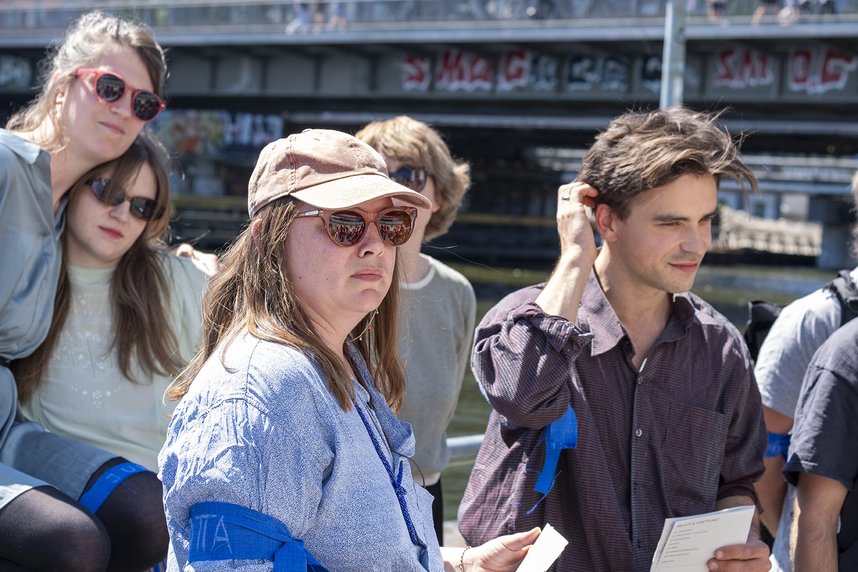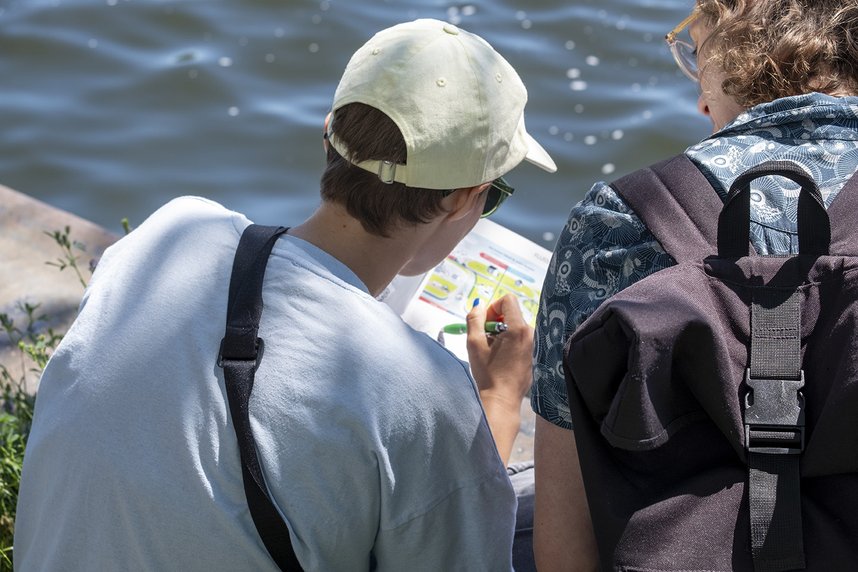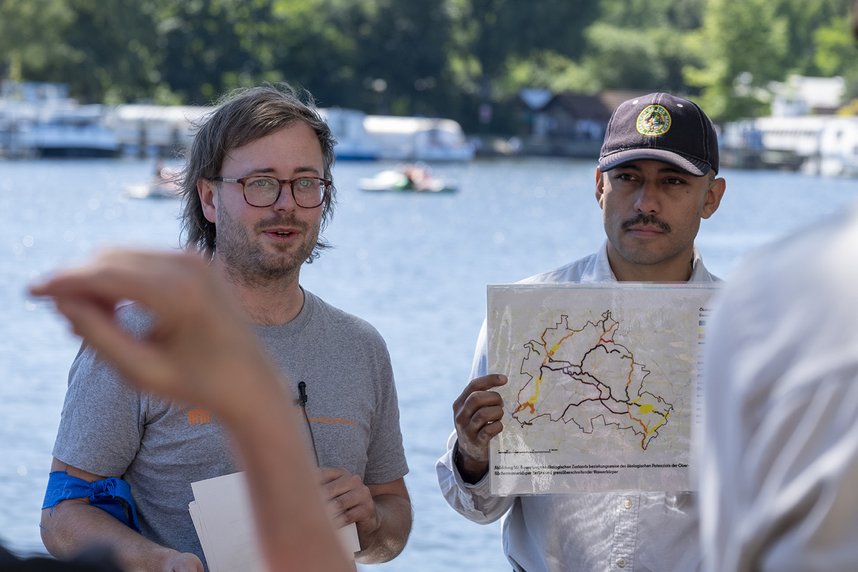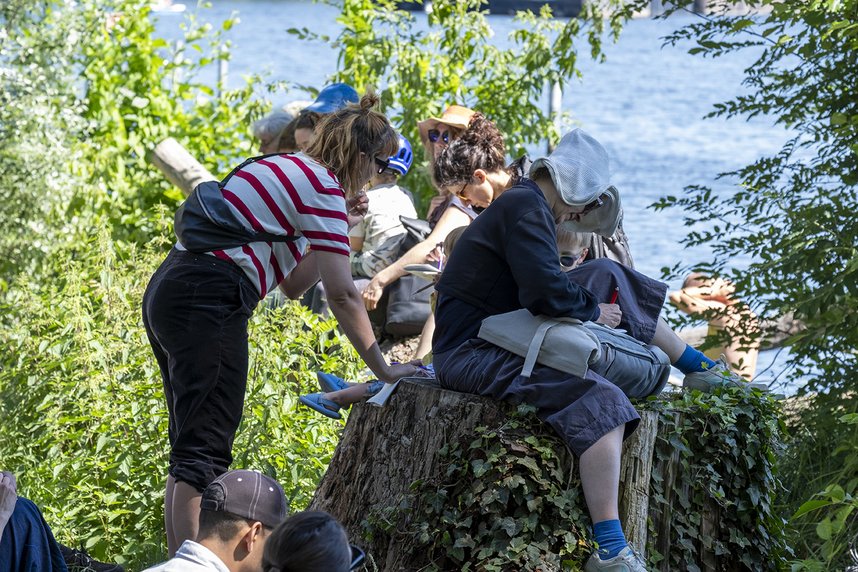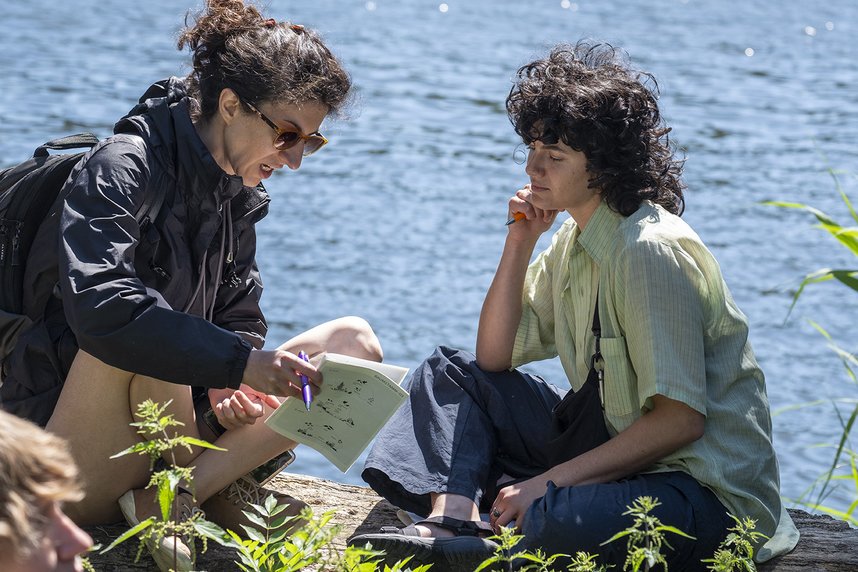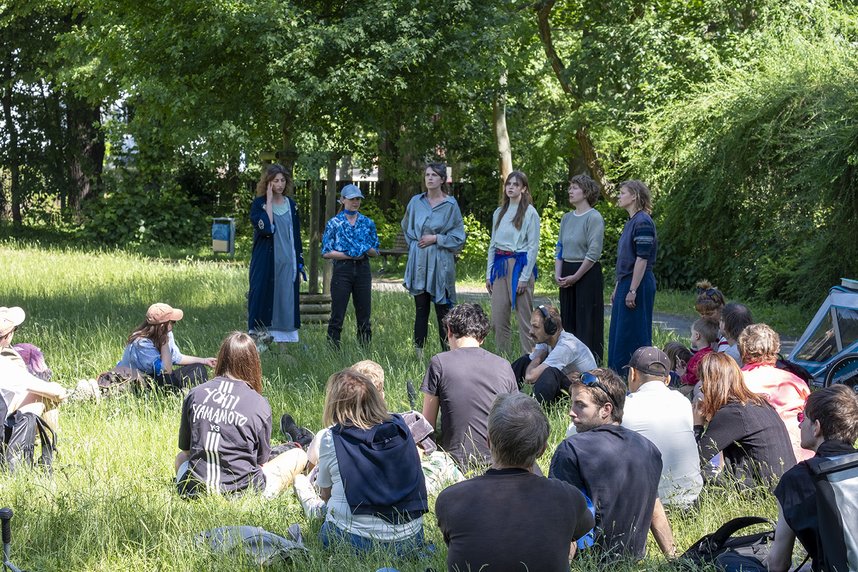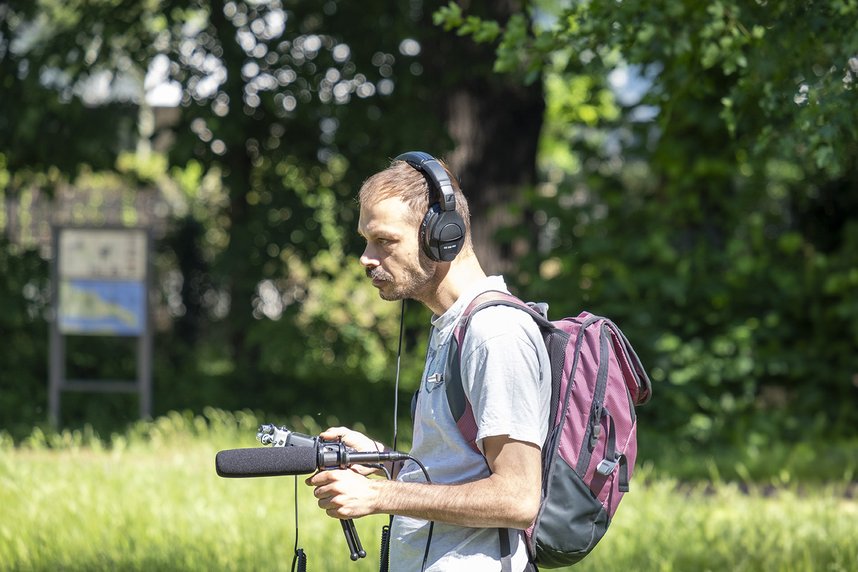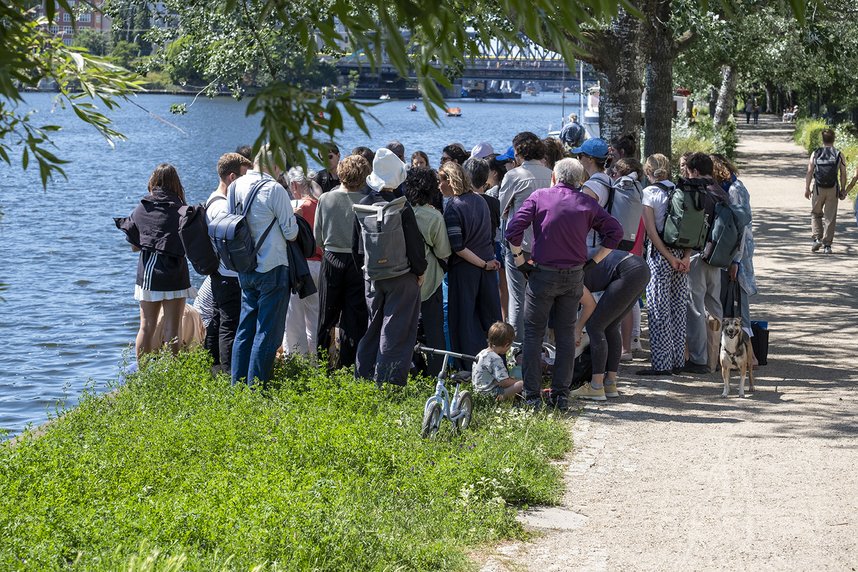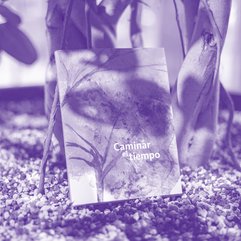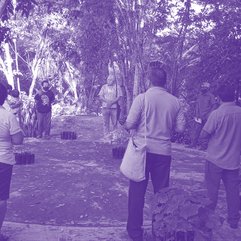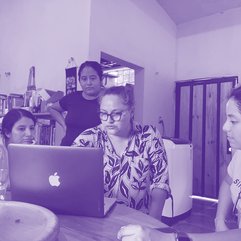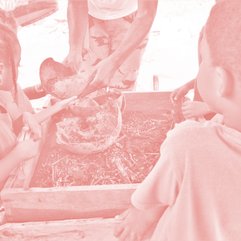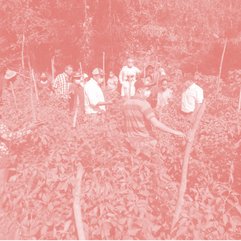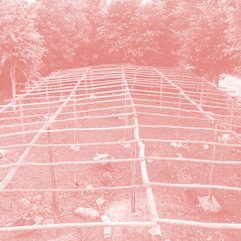Invisible Water
Global warming and changing weather patterns are driving the natural water supply into a cycle of abundance and scarcity: one time there is too much water, another time too little. However, the alternation between abundance and scarcity of a natural resource is not something unnatural. Rather, what is unnatural, is the belief that a certain resource can be available for consumption indefinitely.
– Mikhail Lylov
Almost 7% of Berlin's area is made up of water bodies. Vegetation and the gray soup that is Berlin’s weather (clouds) contain water, as well as pipes and taps that bring it to the end user. In this radio program, we pay attention to the invisible water that surrounds us in Berlin. It is only at moments of abundance, when it flows fast and in plenty, that water becomes visible again.
What accounts for this invisibility?
What role does water play and how does it animate life on its way through an environment?
Where does water hide or remain in the city and where does it evaporate again?
What happens to plants and soils when they suffer from water scarcity?
What techniques do plants use to adapt to a lack of water?
Who lives in, at and on the Spree?
What songs do we sing about our rivers, what stories do we tell about the Spree and Havel?
Where does the water in our pipes actually come from?
How does the city manage its water cycle?
How does it respond to environmental cues to better adapt to times of water scarcity and extreme abundance?
These questions are explored in the radio program, which stitches together responses from the workshop series Invisible Water led by Mikhail Lylov at Spore’s garden, an interview with hydrogeologist Prof. Dr. Irina Engelhardt recorded in Berlin's oldest water pumping station, and a river walk along the Spree organized together with the Spree.Berlin, Wassernetz Berlin, BUND and the Outcha collective.
This radio program was produced jointly by Markus Stein (Cashmere Radio) and Lotta Schäfer (Spore Initiative) ensuring the flow of information beyond the Water Care – Wassersorge(n) public program.





